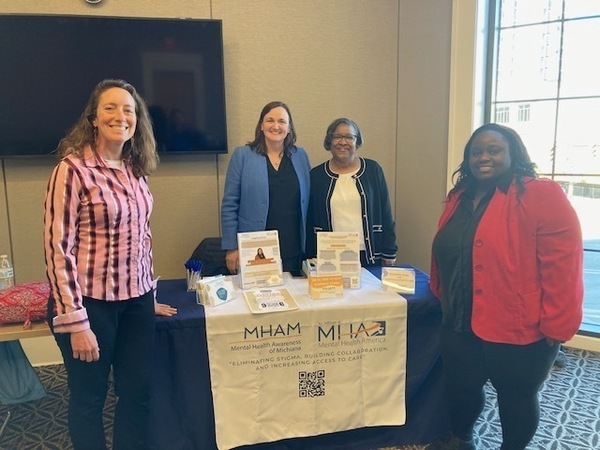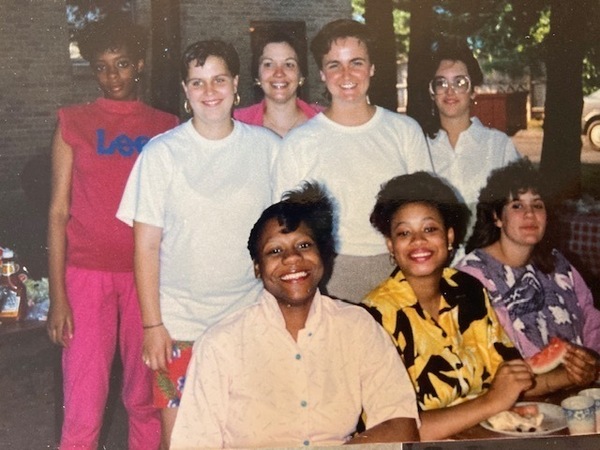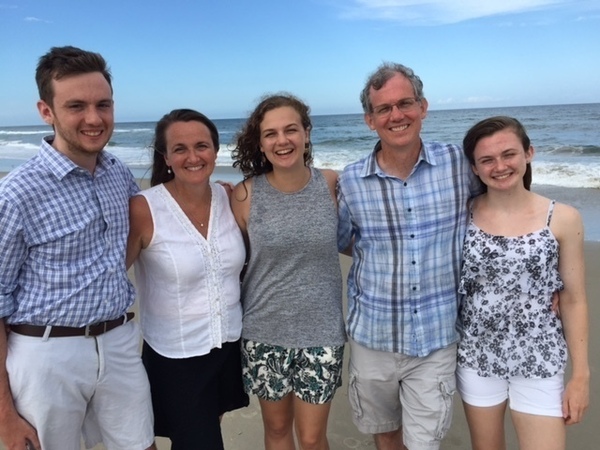
Throughout her career as a licensed social worker and psychotherapist, Lisa Kelly ’88 has tried to ask herself how she can most effectively contribute to society.
“What can any one of us do to impact change? How do we apply our skills and good intentions in a way that really helps the community at large?”
Kelly has sought to answer these questions for herself throughout her career. On the clinical side, she’s provided individual care to patients in her private practice. Her recent immersion into nonprofit work and program development has allowed her analytical side to flourish, as she seeks to impact systemic issues surrounding mental health.
“My whole professional life has been kind of growing between those two skill sets, grounded in clinical work, but also doing the program development, which really is about looking at a problem and figuring out what interventions might be helpful,” Kelly said.
Kelly has found a way to use her skills to impact the communities of St. Joseph and Elkhart counties, serving as the co-founder and executive director of Mental Health Awareness of Michiana, where she works alongside community partners to develop and promote initiatives that eliminate stigma, build collaboration, and improve access to mental health care in northern Indiana and southwestern Michigan. She manages to do this in addition to operating her own private practice.

Kelly never imagined coming back to South Bend. Growing up in Buffalo, New York, and having lived in New York City and Baltimore, she claims her “roots are on the east coast.” When her husband got the job as the director of the Community Development Clinic at Notre Dame Law School, the couple moved back in 2011. Kelly felt drawn to work in the local South Bend community.
“It was really important to me to have a job that engaged with the community because of the previous work I had done in New York City and in Baltimore,” Kelly said.
In New York City, she had worked as a clinical social worker for Little Sisters of the Assumption Family Health Service, and in Baltimore, she developed and coordinated the Perinatal Depression Outreach Program at Sinai Hospital. Core to her work was caring for women experiencing postpartum anxiety and depression.
Kelly’s first instincts for wanting to impact social change were nourished while a student at Notre Dame, particularly at the Center for Social Concerns.
"Experiential learning programs through the Center for Social Concerns were probably among the most important parts of my time at Notre Dame. For 30 years, I have been in spaces where I can grow, figuring out what and where I can contribute. And that is 100% formed by the various experiences I had with the Center," Kelly said.

Her experiences at the Center as an undergraduate prompted her to serve with the Jesuit Volunteer Corps for two years after graduating from Notre Dame. Then, Kelly found a practical way to merge her clinical and analytical interests by earning a joint masters of social work and public health at Columbia University. The graduate program taught her to work one-on-one with individuals, families, and couples, while also educating her on systemic issues affecting people’s lives and developing programs to combat these problems.
Now in South Bend, she is putting this education into action. Kelly and her colleague, Dr. Heather Holleman, took an inventory of sorts, seeing what the community lacked in terms of resources. The two began to look at mental health issues on a broader scale and took a social justice approach in examining equity and access to mental health resources in the area.
That’s how they came to form Mental Health Awareness of Michiana in 2018, with the intention of becoming an affiliate of Mental Health America, which focuses on improving access to care and advocating for good mental health practices. The South Bend-Elkhart area had been without an affiliate chapter for over 20 years.
“We wanted to bring an MHA affiliate back because we felt that having a core organization engaging the entire community and launching community-wide initiatives wasn't something that we were seeing,” Kelly said.
Just as they moved toward collaboration and building the foundation of their work, COVID struck the United States. Mental health conversations became urgent and necessary — and Kelly viewed this as the perfect time for the nonprofit to get off the ground.
“Being able to talk about mental health, doing presentations for the community and to providers to help them feel supported — the timing was right for our organization to be in that space,” Kelly said. “COVID brought mental health into everyone’s consciousness.”
Kelly notes that the demand for mental health services was incredible during that time in the area and continues today, with Indiana in the bottom 20 percent of the country in terms of the number of mental health providers. The increased demand for services during the pandemic put additional stress on a low-resourced system.
MHAM is working to help individuals and families access care by developing a resource hub. "A lot of people are very frustrated with the mental health system, even well-resourced individuals struggle to access care. Our initiatives are designed to help individuals who are having difficulty navigating the mental health system."
Kelly and her team help folks find providers, and also set up a pro-bono counseling project designed for people who don’t have insurance or financial resources to pay for services. Alongside these tangible solutions, part of Kelly’s broader work is helping to educate the community about mental health — and how community partnership is key to solving systemic problems.
“Really, mental health affects everything. You can’t really talk about housing without talking about mental health. You can’t talk about returning citizens without mental health. You can’t talk about the experience of parenting without talking about mental health. Mental health affects every aspect of people’s lives.”
The educational events Kelly organizes in the community seek to illustrate this web, as she invites folks from multiple institutions and organizations to participate in talks and “resource tables.” During the fall, MHAM hosted an event that included panelists from community organizations, elected officials, and Faith in Indiana. The goal, Kelly says, is for people to leave the event and think, “I want to reach out to that organization because my organization could collaborate with them.”

Destigmatizing mental health and collaboration is one goal, but another is helping folks to feel empowered to ask for help. Kelly advises that especially with the rise of social media, younger people end up feeling isolated because it’s a false form of connection. Even the presence of a trusted family member, friend, or teacher can make a difference in helping someone feel a sense of belonging in person.
"We want kids to have experiences that help them to feel good about themselves. Social media is not providing the sense of belonging that will improve their mental health," Kelly adds.
A sign of hope has been witnessing Notre Dame students volunteer with her organization the last few years. It’s a full-circle moment for Kelly, who this year has worked with neuroscience majors from Nancy Michael’s classes, and previously had worked with McNeill Fellows through the Center for Social Concerns.
“I hope the University knows that the students themselves are assets to this community and for organizations that they can partner with. It’s a win for the student, but it’s also a win for the community.”
Originally published by at weare.nd.edu on March 04, 2024.